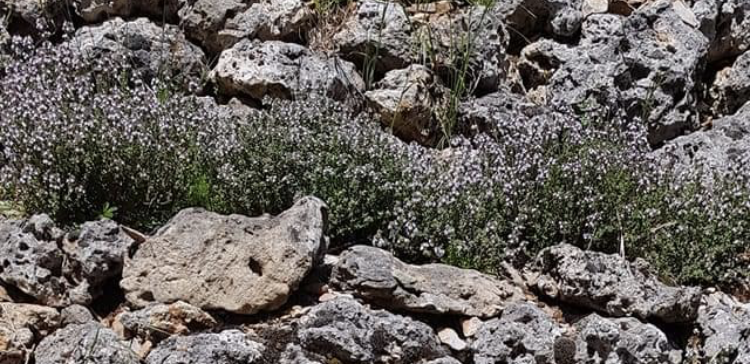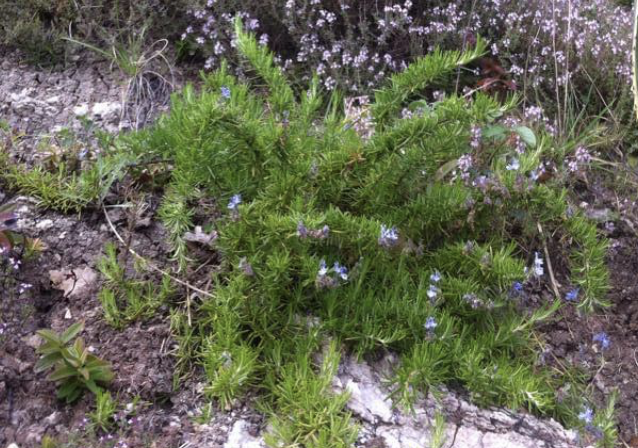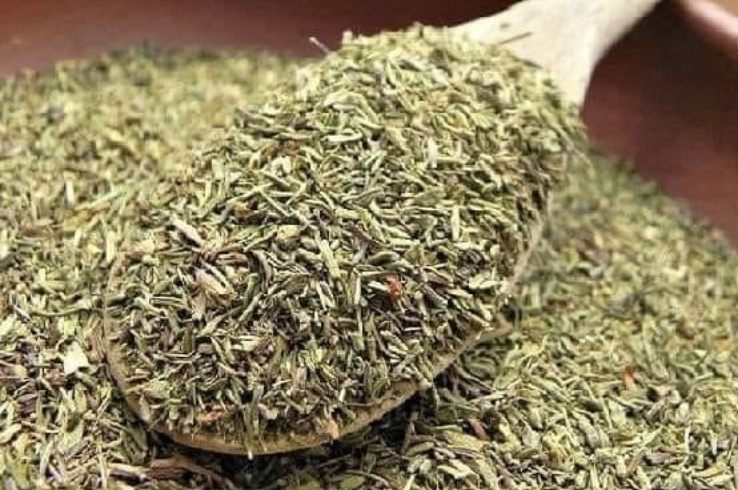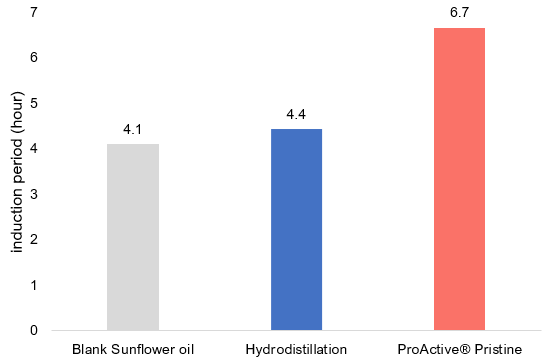ProActive® Pristine: From Thyme, the Queen of Provence’s Herbs

Like lavender, thyme is one of the aromatic plants that is emblematic of Provence and its renowned garrigue. Thyme, also called serpolet, actually has its own name in Provençal: Farigoule. Needless to say, thyme has a long history in this region, starting with the Roman empire, which spread the cultivation of thyme to the south of France. Thyme was customarily burned to purify the air in houses and to chase away the evil eye. It was also used to flavour liquors and cheeses. The cosmetic properties of thyme were also recognized early on, exemplified by its uses in toilet water, in diaper perfume, and as an aging retardant.
In Provence, thyme is a relatively capricious plant to cultivate. Growing in areas up to 2000 m of altitude, it likes the sun, thrives on dry, rocky hills, and does not grow well in wet soil. These environmental preferences are derived from thyme’s essential oils, which are critical to the plant’s survival.
Essential oils make plants resistant to difficult climate conditions such as heat, sun, or drought; protect against predators or parasites; and attract pollinators. The more treacherous the plant’s growing conditions are, the richer the aromas of its essential oils become. Thyme’s ability to resist strong heat is derived from its essential oils, which are produced during the night and evaporate during the day to dissipate heat. The main essential oil present in common thyme is the eponymous thymol.

In its natural state, thyme (Thymus vulgaris) produces a diverse range of aromas. This is attributed to its ability to adapt to various environments by changing the composition of its essential oils. Thyme has six major chemotypes: Chemotypes thymol and carvacrol are phenolic entities that grow in hot and dry environments, and chemotypes linalool, thuyanol, alpha-terpineol, and geraniol are non-phenolic entities that grow in cooler and wetter environments. We selected thyme of chemotype thymol to produce ProActive® Pristine.

ProActive® Pristine is produced from a proprietary Proscien® extraction process that uses the aerial parts of the plant. One of the major active components of ProActive® Pristine, thymol, is a known bactericidal substance. As such, ProActive® Pristine inhibits the growth of antibiotic resistant Staphylococcus aureus, providing anti-infection and anti-inflammatory performance for skincare applications. It also has strong antioxidative properties, as evidenced by its ability to protect lipids from oxidation.
Staphylococcus aureus is a gram-positive bacterium that is responsible for a broad spectrum of diseases. These diseases range from food poisoning and superficial skin or soft tissue infections to life-threatening infections such as bacteremia, endocarditis, osteomyelitis, pneumonia, or toxic shock syndrome. Staphylococcus aureus is notorious for its ability to quickly become resistant to many antibiotics, making it one of the most serious pathogens in humans. In our tests with bacteria strains of different sources, ProActive® Pristine exhibited an anti-staphylococcal effect with minimum inhibitory concentrations (MICs) ranging from 512 to 967 μg/ml.

The antioxidative properties of ProActive® Pristine and a hydrodistillation extract of the same plant material were assessed using the Rancimat test with sunflower oil as the blank oil. The vessel containing the sample (9.9 g of sunflower oil and 0.1 g of the extract) was heated at 120 °C with compressed air passing through at a flow rate of 20 l/h. Volatile compounds formed in the process were collected in the water vessel and the increase of water conductivity was measured. The time necessary to achieve the conductivity value that corresponds to the inflection point of the oxidation curve was considered as the induction period (IP, h). The longer induction period (IP) corresponds to better antioxidative performance of the added extract. ProActive® Pristine achieved an IP of 6.66, higher than that of the hydrodistillation extract (4.43), which in turn was higher than that of the blank oil (4.1).
